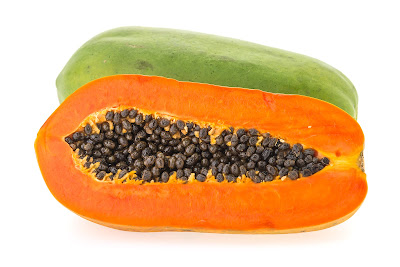Health Benefits of Papaya
I. Introduction
A. Brief history of papaya
Tropical fruit papaya, often called pawpaw, is said to have its origins in southern Mexico and Central America. From ancient times, people have been cultivating it, and the Mayans and Aztecs particularly revered it for its therapeutic benefits. Spanish and Portuguese explorers brought the fruit to other regions of the world, such as the Philippines, India, and portions of Africa, in the 16th century.
B. Types of papaya
Papayas come in two primary varieties: Hawaiian papayas and Mexican papayas. The Mexico papaya is bigger and milder with yellowish-orange flesh, whereas the Hawaiian papaya is smaller and sweeter with reddish-orange flesh. The Maradol, Caribbean Red, and Sunrise papayas are some further papaya kinds.
C. Overview of papaya's health benefits
A fruit high in vitamins, minerals, fiber, and antioxidants, papaya is nutrient-dense. Many health advantages have been linked to it, such as better digestion, heart health, skin health, immune system support, anti-inflammatory effects, and anti-cancer effects. We shall go more into these health advantages in the sections that follow.
II. Nutritional Information
A. Calories
Papaya is a low-calorie snack choice since one serving, or one cup of chopped fruit, only has about 60–70 calories.
B. Vitamins and Minerals
With more than 100% of the daily recommended allowance in just one serving, papaya is a fantastic source of vitamin C. It also includes magnesium, potassium, folate, vitamin A, and calcium. It also has trace levels of vitamin E, calcium, iron, and zinc.
C. Fiber
A serving of papaya has around 3 grams of fiber, making it a healthy source of the mineral. Fiber can aid in preventing constipation and other digestive problems and is crucial for keeping a healthy digestive tract.
D. Protein
With only around 1 gram of protein per serving, papaya is not a particularly rich source of protein. For a well-rounded meal or snack, it can be combined with other protein-rich meals.
III. Health Benefits of Papaya
A. Digestive Health
- Papain Enzyme: Papayas contain the papain enzyme, which facilitates digestion and aids in the breakdown of proteins. Moreover, it can aid in the relief of digestive problems including bloating, constipation, and heartburn.
- Fiber Content: A healthy digestive tract depends on frequent bowel movements, which can be encouraged by papaya's fiber.
- Antioxidants: Antioxidants including vitamin C, beta-carotene, and flavonoids, which are abundant in papaya, can help prevent digestive issues like colon cancer.
B. Heart Health
- Potassium Content: Potassium, which is abundant in papaya and helps to control blood pressure and lower the risk of heart disease, can assist to lower blood pressure.
- Vitamin C Content: Papaya's vitamin C helps enhance heart health by lowering oxidative stress and inflammation, which can harm blood vessels.
- Lycopene: Lycopene, a carotenoid found in papaya, has been associated with a lower risk of heart disease.
C. Skin Health
- Vitamin C Content: Papaya's vitamin C can promote skin health by promoting the formation of collagen, which helps lessen wrinkles and increase skin flexibility.
- Antioxidants: Papaya's antioxidant content can aid in preventing pollution and UV ray-induced skin damage.
- Beta-carotene: As a result of oxidative stress, papaya's beta-carotene can help prevent skin damage and early aging.
D. Immune System Support
- Vitamin C Content: A great source of vitamin C, which helps strengthen the immune system and guard against infections, is papaya.
- Antioxidants: Papaya contains antioxidants that can help defend against free radicals, which can harm the immune system
- Papain Enzyme: By dissolving proteins and lowering inflammation, papain from papaya can also assist in enhancing immunological function.
E. Anti-inflammatory Properties
- Papain Enzyme: The papain in papaya can aid in reducing edema and inflammation.
- Antioxidants: By defending against free radicals, papaya's antioxidants can aid to lessen inflammation.
- Flavonoids: In addition to lowering overall inflammation, papaya flavonoids may be especially beneficial for reducing arthritis-related inflammation.
F. Anti-cancer Properties
- Lycopene: Papaya's lycopene is associated with a lower chance of developing some cancers, including prostate cancer.
- Antioxidants: Papaya's antioxidants can help prevent cancer by scavenging potentially harmful free radicals that might harm cells.
- Beta-carotene: By encouraging cell development and repair, papaya's beta-carotene may also aid in the prevention of cancer.



0 Comments